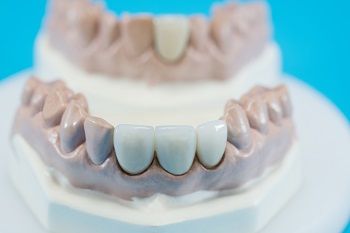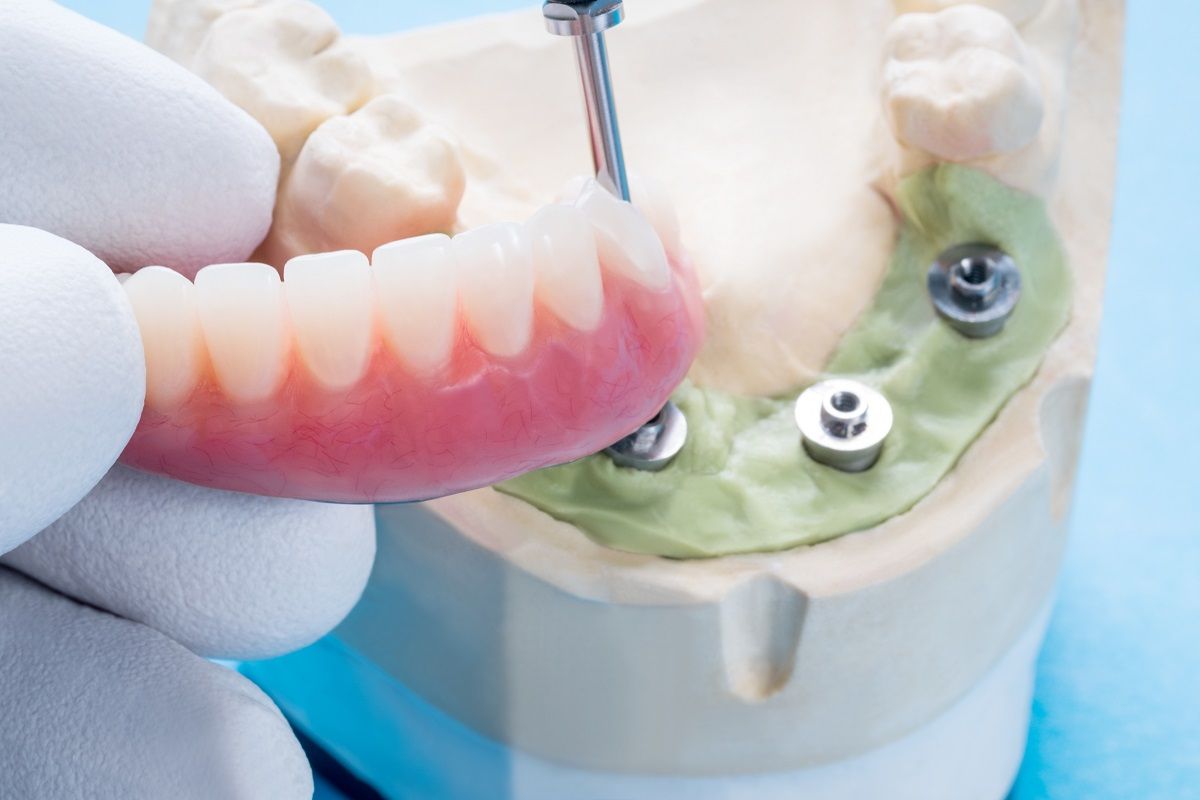Nowadays, there are different materials for fixed bridges; however, porcelain is the most popular type. A porcelain bridge offers an excellent restoration for one or more missing teeth. This restoration is either supported by dental implants or by natural teeth.
A porcelain dental bridge mimics the natural tooth color and is a permanent restoration. Besides improving aesthetics, it also gives a solid foundation to your dental bridge. A porcelain dental bridge is good to consider if you have one or more consecutive missing teeth.
There is a specific criterion to avail of this dental restoration for its enhanced functionality. However, only some are good candidates for porcelain bridges. Read on to learn if you are a candidate for this dental bridge and prepare yourself in advance.
What is a Porcelain Fixed Dental Bridge?
A porcelain fixed dental bridge is a perfect alternative to dental implants. Porcelain is known for its excellent chemical properties. It is a tooth-colored material that matches the rest of your teeth. Dental porcelain fixed bridge is highly durable and adequately replaces the missing teeth.
This type of dental bridge comprises two crowns attached to one or more artificial teeth. Artificial or false teeth help fill the gap and aid chewing. A porcelain fixed bridge is perfect to consider in the case of the following:
- Filling the space or bridging the gap because of missing teeth.
- Restoring proper tooth function.
- Putting back the ability to chew and good speech.
- Maintaining the natural shape of your face.
- Preventing teeth from shifting or drifting out of position.
"A porcelain dental bridge is popularly known for its durability and strength. It has a high success rate of over 95% and can withstand anything you eat".
Reasons Why You Should Pick Porcelain for Your Fixed Bridge?
You might be thinking about the best dental restoration if you have missing teeth. Porcelain is an excellent material for dental aids. Besides dental implants, they work well for fixed dental bridges. Porcelain dental bridges usually work better for anyone who has an overall good state of health.
However, you must fulfill the proper criterion to see if you are a potential candidate. If your dentist is considering a porcelain fixed bridge for your dental needs, you must know the following things:
- Porcelain bridges last longer and do not wear out quickly.
- It mimics the natural color of teeth and easily blends in with the existing teeth.
- Porcelain is versatile in its application and won't disappoint you.
- A dental porcelain bridge doesn't lose its charm over time. It won't change significantly over time and will optimize your oral health.

Is Porcelain Dental Bridge Appropriate for You?
The design of a porcelain dental bridge is just like natural teeth. It mimics the function and aesthetics of your original teeth and is a significant investment in the long run. However, only some are good candidates to avail of this dental restoration.
It implies that a specific criterion is imperative to know if a porcelain bridge is right for you. Here, we'll discuss the candidature of its eligibility. So, let's get started.
- You Have One Or More Consecutive Missing Teeth.
You are an ideal candidate for a dental bridge if you have one or multiple missing teeth. One bridge covers up to four consecutive missing teeth. However, it is essential to note that a single bridge cannot work for non-consecutive missing teeth.
Replacing missing teeth with a dental restoration is a must to prevent serious dental issues. These include teeth overcrowding, bone loss, poor jaw function, teeth wear and tear, etc.
- Your Surrounding Teeth Are in A Good State of Health.
A dental bridge also requires good health for your surrounding teeth. It's because they will support your dental bridge, and it won't fall out. Damaged, broken, or decayed teeth cannot hold up the bridge, and the bridge procedure would rather fail.
A mouth free of gum disease and dental issues is a great asset to promote oral health. It helps ward out issues such as infection, medical problems, needing further orthodontics, etc.
- Your Jawbone Density Is Adequate.
The viability and success of a porcelain dental bridge heavily depend upon the jawbone density. Dense bone tissue is required to support a fixed bridge. Patients having inadequate jawbone density aren't well-suited for this dental restoration. That's because the bridge can eventually loosen and fall, leading to the failure of the process.
Adequate jawbone density is imperative for maintaining good oral health and allowing for an optimal teeth replacement option.
- Your Mouth Is Free of Gum Disease.
Your mouth must be free of gum disease before a dental bridge procedure. Having gum disease beforehand will cause gum recession, affecting the dental bridge's appearance and fit.
However, if you still meet the rest of the criteria of a dental bridge, the dentist will treat your gum disease before fixing the dental bridge.
- Your General Health Is Reasonably Good.
You must be in good health to avail of this dental restoration. The surrounding teeth will need some modification to fit the dental bridge. Some parts of the tooth structure are trimmed or lost during this procedure. Also, your gums can be slightly affected by this.
If you have an underlying medical condition, it would be difficult to place the bridge, and it might lead to some complications.
- You Have the Urge to Maintain Your Oral Health.
Last but not least, you must be committed to maintaining good oral hygiene to increase the success rate of a dental bridge. Dental bridges can last for many decades with proper care, and it helps prevent decay around the bridge.
Having a bridge will prevent dental problems. However, if good oral hygiene is maintained, it will reduce the risk of having an infection or gum disease.
When Aren't You a Good Candidate for a Porcelain Bridge?
While knowing the eligibility criterion is important, knowing when a dental bridge is inappropriate for you is equally essential. Let's have a quick look at it.
- You have inadequate jawbone density. Insufficient jawbone density can't hold the dental bridge and will eventually fall out or break.
- You have a significant medical condition that might impact the process. If you have a severe medical health issue, the success rate of a dental bridge is relatively low.
- Your surrounding teeth are diseased or weak. The weak surrounding teeth can't hold the bridge, which will eventually fail.
- You have ongoing dental problems. Good oral health is imperative for good functioning. Placing a bridge would only be helpful if you do not have gum disease or infection.
Benefits of a Porcelain Fixed Dental Bridge
- A porcelain fixed bridge helps restore your lost teeth function.
- It efficiently replaces your missing teeth and helps resolve your smile discrepancy.
- This dental bridge is easily blended with natural teeth and mimics the role of the original teeth.
- The fixed porcelain dental bridge remains intact while you eat, sleep, or speak.
- It aids chewing and speaking and adequately fills the gap of missing teeth.
Concluding Thoughts
You are at a greater risk of bone deterioration when you have one or more missing teeth. Therefore, replacing your missing teeth with the proper dental restoration is imperative. A fixed dental bridge is best to consider if you have one or more consecutive missing teeth.
It is more cost-effective than dental implants and helps bridge the gap between one or multiple missing teeth. Talk to your dentist if you want to replace missing teeth with this dental device and restore your smile.
Contact your Pinole dentist, Dr. Azadeh Hosseini, and Dr. Ghazal Hosseini at Top Pinole Dental to learn more about Porcelain Fixed Dental Bridge.
Resource:
Porcelain Fixed Bridges: Why; How?
*This media/content or any other on this website does not prescribe, recommend, or prevent any treatment or procedure. Therefore, we highly recommend that you get the advice of a qualified dentist or other medical practitioners regarding your specific dental condition.*

